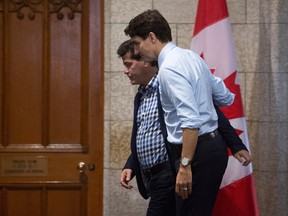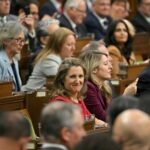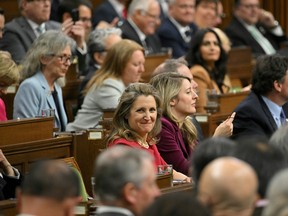
Was the USMCA Deal a Win for Canada in Trade Relations and Economic Growth?
The article discusses how the recent announcement by General Motors (GM) to close its Oshawa factory has led to a re-evaluation of the benefits of the USMCA trade deal. The author argues that the blame for the closure should not be placed on Donald Trump or corporate greed, but rather on Canada’s failure to develop and maintain ownership of its own auto industry.
The article points out that Canada has been treating the NAFTA negotiations as a David-versus-Goliath story, with rare consideration given to why these negotiations were being dictated by dairy farmers and auto companies. The author suggests that this delusion was perpetuated by the media and politicians who rejoiced at the apparent "victory" of the deal without critically examining its implications.
The article criticizes Canada’s decision to cede control of its auto industry to international owners, particularly GM, which bought out McLaughlin Motor Car Co. in 1928. This has led to a labor shortage and a chronic lack of skilled workers in the sector. The author suggests that instead of demanding tariffs on imports from Mexico or nationalizing GM Canada, the government should be working with employers and unions to address the labor shortage and develop a more robust trade strategy that prioritizes Canadian ownership of intellectual property.
The article concludes by urging Prime Minister Trudeau to focus on addressing the underlying issues driving the closure of the Oshawa factory, rather than simply fighting for tariffs or nationalization. It suggests that Canada needs to develop a more strategic approach to its trade policy and prioritize its own economic development.
Key points:
- The USMCA deal was touted as a victory, but it may not have delivered the expected benefits.
- Canada’s failure to develop and maintain ownership of its auto industry has led to chronic labor shortages.
- The government should focus on addressing underlying issues rather than simply blaming Trump or corporate greed.
- A more robust trade strategy is needed that prioritizes Canadian ownership of intellectual property.
- Prime Minister Trudeau should work with employers and unions to address the labor shortage and develop a more strategic approach to trade policy.













